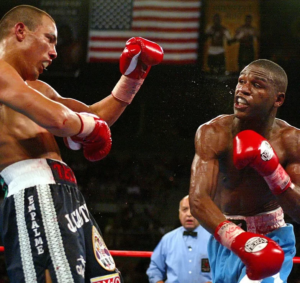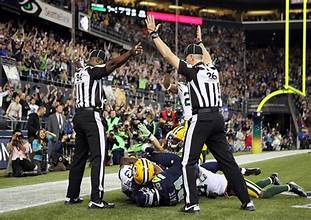
Sports are often hailed as a reflection of our culture and values, but the decisions made within the world of athletics can sometimes stir intense debate. In 2024, several controversial sports decisions have sparked significant discussion among athletes, fans, and pundits alike. These decisions not only impact the immediate outcomes of games but also shape the broader landscape of sports and their governance. In this article, we’ll delve into the most contentious sports decisions of the year, analyze their implications, and explore what they mean for the future of sports.
1. The New Olympic Qualification Rules
One of the most debated decisions in 2024 has been the overhaul of the Olympic qualification rules. The International Olympic Committee (IOC) introduced a new qualification system aimed at increasing global participation and fairness. However, the changes have been met with criticism from various quarters.
The Changes
The new rules involve a revised points system that prioritizes recent performances over historical achievements. Additionally, some sports have seen their qualification standards raised, while others have been relaxed.
Controversy and Impact
Critics argue that these changes disproportionately affect athletes from countries with less developed sports infrastructure. For example, athletes from smaller nations may struggle to meet the new standards, potentially excluding them from competing on the world stage. On the other hand, proponents believe the changes will encourage more consistent performance and provide a more accurate reflection of current talent levels.
Implications for Athletes and Fans
For athletes, the new rules mean a shift in strategy and preparation. Those who previously relied on past performances to secure their place may need to adjust their approach. Fans, meanwhile, may experience a shift in the representation of their favorite athletes and teams, impacting their engagement with the Games.
2. Controversial Referee Decisions in Major League Sports
In 2024, several high-profile games in major leagues such as the NFL, NBA, and Premier League have been marred by controversial referee decisions. These calls have led to heated debates about the fairness and consistency of officiating.
High-Profile Incidents
Notable examples include a disputed touchdown call in the NFL playoffs and a contentious penalty in a Premier League match. In both cases, the decisions were made using technology and instant replay, yet they still faced significant backlash.
Public Reaction and Criticism
Fans and analysts have expressed frustration with the perceived inconsistency in officiating. While technology has aimed to reduce human error, these incidents suggest that even advanced systems can be flawed or misinterpreted. The controversy highlights ongoing challenges in ensuring fair play and maintaining the integrity of the game.
Future Prospects
To address these issues, sports leagues are considering further improvements in officiating technology and training. There may also be increased transparency in the decision-making process to rebuild trust among fans and players.
3. The Debate Over Athlete Endorsement Deals
Another major controversy in 2024 involves the growing influence of endorsement deals on athlete performance and team dynamics. Several athletes have signed lucrative contracts with brands that have sparked debate about their impact on the sport.
Key Endorsement Deals
High-profile deals include a multimillion-dollar contract for a top NBA player with a major sportswear brand and a controversial sponsorship agreement in Formula 1. These deals have raised questions about the balance between personal gain and team loyalty.
Criticism and Concerns
Critics argue that excessive endorsement deals can create conflicts of interest and undermine team cohesion. There are concerns that athletes may prioritize personal brand building over their team’s success, potentially leading to tensions and distractions.
The Path Forward
Sports organizations are exploring ways to regulate endorsement deals to ensure they do not adversely affect team dynamics or the integrity of the sport. There may also be increased scrutiny of such deals to ensure they align with ethical standards and do not compromise the spirit of competition.
4. Controversy Over Gender Policies in Sports
Gender inclusion policies have been a hot topic in sports throughout 2024. Recent decisions regarding the participation of transgender athletes in women’s sports have led to significant debate and division.
Policy Changes
Several sports federations have updated their gender policies, allowing transgender athletes to compete based on their gender identity. These policies aim to promote inclusivity and equality but have also faced backlash from various stakeholders.
Diverse Reactions
Supporters of the new policies argue that they are a step towards greater inclusivity and respect for individual rights. However, opponents claim that the policies may create an uneven playing field and disadvantage cisgender female athletes.
Navigating the Debate
Sports organizations are working to balance inclusivity with fairness, often seeking guidance from experts in sports science, ethics, and law. This ongoing dialogue is crucial for developing policies that respect all athletes while maintaining competitive integrity.
5. The Impact of New Technology on Fair Play
Technological advancements have revolutionized sports in 2024, but they have also raised questions about their impact on fair play and the essence of the game.
Technological Innovations
New technologies such as AI-driven analytics, advanced performance tracking, and virtual reality training have become integral to sports. While these innovations offer significant benefits, they also raise concerns about their influence on competition.
Controversies and Concerns
Some argue that the reliance on technology can lead to an overemphasis on data-driven strategies at the expense of traditional skills and tactics. Additionally, there are concerns about the potential for technology to create an uneven playing field, particularly if access is not equitable across all teams and athletes.
Looking Ahead
The challenge for sports organizations is to integrate technology in a way that enhances the game without compromising its fundamental principles. Ongoing dialogue and regulation will be key to ensuring that technological advancements contribute positively to the sport.
Conclusion
The controversial sports decisions of 2024 reflect broader trends and challenges within the world of athletics. From qualification rules and officiating controversies to endorsement deals and gender policies, these decisions have significant implications for athletes and fans alike. As sports continue to evolve, it is crucial for stakeholders to engage in open dialogue and seek solutions that uphold the integrity and spirit of competition while embracing progress and inclusivity.


